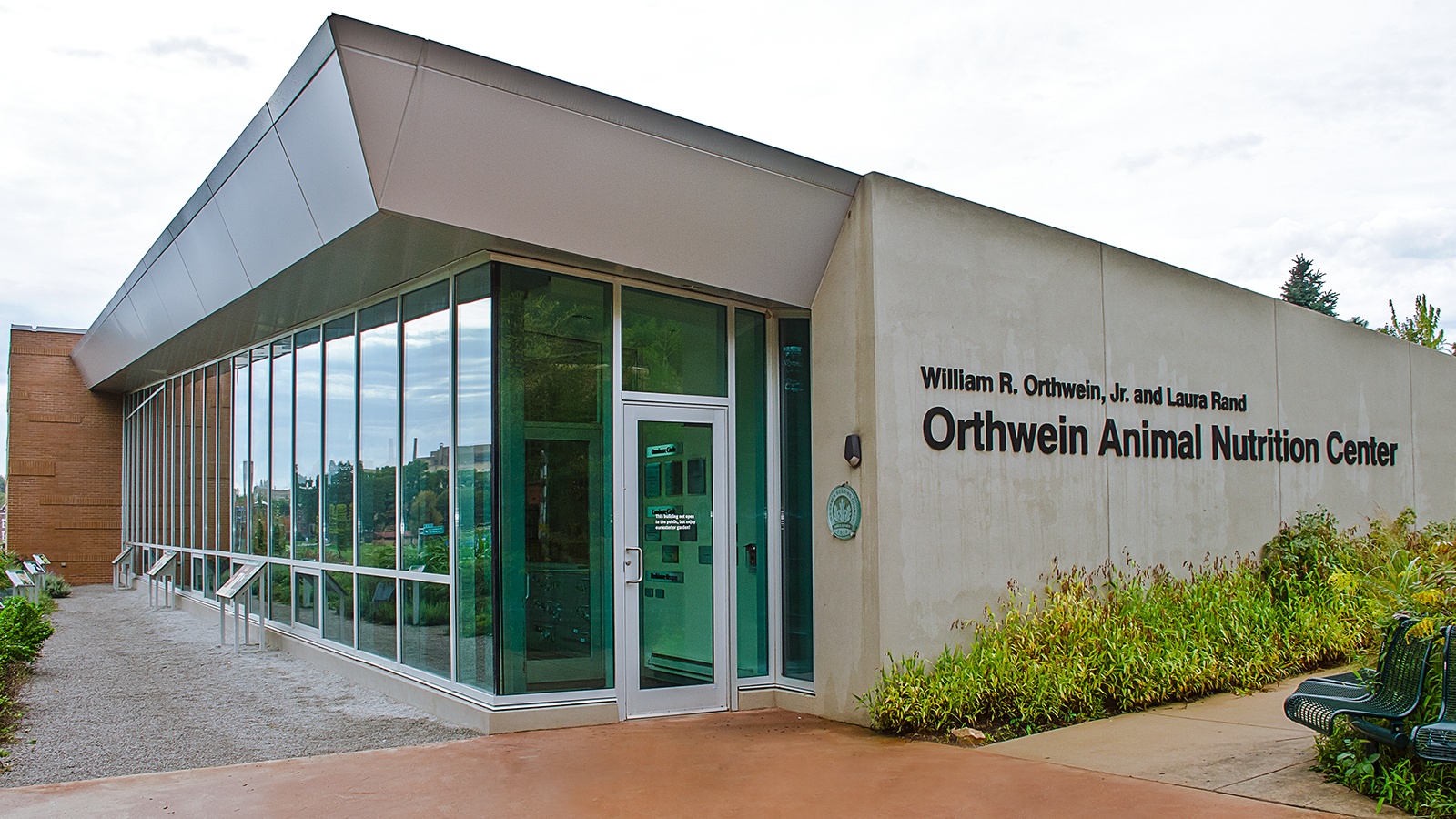
The Orthwein Animal Nutrition Center

Animal Food & Nutrition Center
At the Zoo, our staff in the Orthwein Animal Nutrition Center work hard to make sure the animals eat well. It takes as many as 24 employee hours per day to prepare and deliver the bulk foods and special diets needed throughout the Saint Louis Zoo.
Debra Schmidt, Ph.D., William R. Orthwein, Jr. Family Animal Nutritionist at the Zoo, first determines the nutritional needs of each animal. Dr. Schmidt determines how much protein, fat, fiber, carbohydrates, vitamins and minerals each animal needs, and which foods best provide these nutrients. She works closely with curators, keepers and veterinarians to make sure our animals are eating healthy.
The Nutrition Center keepers then take those recommendations and ensure that the proper items are packaged and delivered to the animal keepers, who in turn prepare meals for individual animals. The Nutrition Center keepers start their day at 5:30 a.m. in order to have all the food delivered by the time the animal keepers arrive to begin their daily routine. One Nutrition Center keeper can move up to 700 tons of food per year (which is equal to 170 male hippos).
Orthwein Animal Nutrition Center
The William R. Orthwein, Jr. & Laura Rand Orthwein Animal Nutrition Center's sleek, modern design incorporates many green design features, making it one of only a handful of buildings in the St. Louis area to receive the U.S. Green Building Council's Leadership in Energy and Environmental Design (LEED) silver certification. Energy efficient and environmentally friendly features, including a green roof composed of a mixture of colorful sedum (succulent all-weather plant) species and grasses, optimized heating and cooling systems, plus the extensive use of natural light and recycled materials, will ensure compliancy with the LEED rating systems.

The building is situated partially underground to assist in all-season temperature regulation. Indoor silos keep our bulk feed in a regulated environment, reducing the risk of molding due to constant temperature and humidity fluctuations present in traditional outdoor silos.
This 10,000-square-foot facility offers high-tech capabilities. There are four food preparation stations in a stainless steel kitchen, cold and dry storage, giant walk-in coolers and oversized shelving, plus a loading dock for large food deliveries.
Stop by to peer in the large windows and see all that it takes to keep our animals well fed!
Medicinal Herb Gardens
In front of the Orthwein Animal Nutrition Center, you will find several medicinal herb gardens. Mint, basil, lemongrass, rosemary, fennel and marjoram are offered as enrichment, which encourages animals to demonstrate natural, species-specific behaviors (such as rolling around in the new scent).
Browse from Ameren Missouri
We’re dedicated to providing the best care and the healthiest diets for our animals. Fresh browse (leafy tree branches) is packed with essential vitamins and fiber and is an important dietary item for many of our animals. We are thrilled to partner with Ameren Missouri, who delivers weekly tree trimmings to the Zoo. Each year, Ameren donates approximately 16,000 pounds of browse to our animals.
Zoo Grocery List
At a glance, here are some of the food items the Zoo purchases on an annual basis
-

Hay Bales: 18,000
-

Produce: 190,000 pounds
-

Crickets: 4.32 million
-

Frozen Rodent Prey: 101,400
-

Carnivore Diet: 41,500 pounds
-

Capelin: 90,000 pounds
-

Herring: 25,000 pounds
-

Rabbits: 800

